Iran's Houthis Launch Ballistic Missiles Into Red Sea
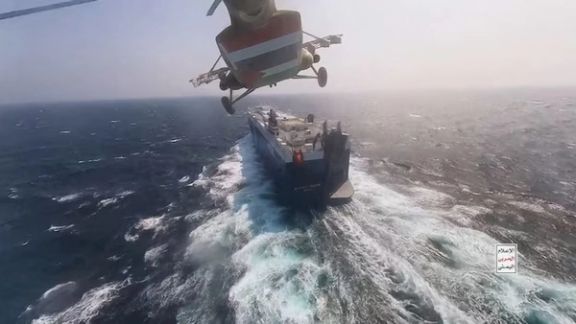
The Iranian-backed Houthis launched two anti-ship ballistic missiles (ASBM) from Houthi-controlled areas of Yemen into the Red Sea over the past 24 hours.

The Iranian-backed Houthis launched two anti-ship ballistic missiles (ASBM) from Houthi-controlled areas of Yemen into the Red Sea over the past 24 hours.
The US military, CENTCOM, called the attack "continued malign and reckless behavior" by the group designated terrorists by countries including the US, claiming the ongoing offensive threatens regional stability and endangers the lives of mariners across the Red Sea and Gulf of Aden. No injuries or damage was reported by US, coalition, or commercial ships.
The Houthis began a blockade of the Red Sea region in mid-November in support of Iran-backed Hamas's war in Gaza following Iran’s Supreme Leader Ali Khamenei's call on Muslim countries to blockade Israel and Israeli-linked ships. However, since the US and UK launched direct attacks on Houthi targets, the Yemeni proxy said they are also targets of the blockade.
Dozens of hostages unrelated to Israel have been taken hostage on ships unrelated to the Jewish state since the blockade began. Claiming to be in allegiance with Hamas in Gaza amid the war sparked by the terror group's invasion of Israel of October 7, in which 1,200 mostly civilians were killed and 250 hostages taken to the strip, the blockade has since extended to the Indian Ocean. It has had a major impact on international shipping through the Red Sea, the shortest route between Asia and Europe.
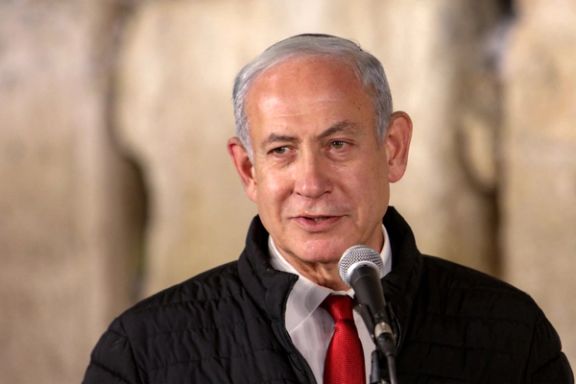
Israeli Prime Minister Benjamin Netanyahu toured the country's northern border with Lebanon on Wednesday and said Israel was prepared for strong action in the north against Iran-backed Hezbollah.
Israeli towns near the border, many of which have been evacuated, have been a frequent target of rocket and drone launches from Lebanese militant group Hezbollah. The rockets set off massive wild fires this week, burning swathes of land across northern Israel.
"Whoever thinks that they can harm us and we will sit idly by is making a big mistake. We are prepared for a very strong action in the north. In one way or another we will restore security to the north," Netanyahu said.
In recent days, there have been more reports citing Israeli officials of a possible military push against the heavily armed Hezbollah that controls Lebanon's border region with Israel.
Iran-backed Hezbollah and Israel have been exchanging fire for the past eight months in parallel with the Gaza war, raising concerns that an even wider conflict could break out between the heavily armed adversaries.
The hostilities between Israel and Hezbollah have been their worst since they waged war in 2006, and tens of thousands of people on both sides of the border have been forced to flee their homes.
Reporting by Reuters
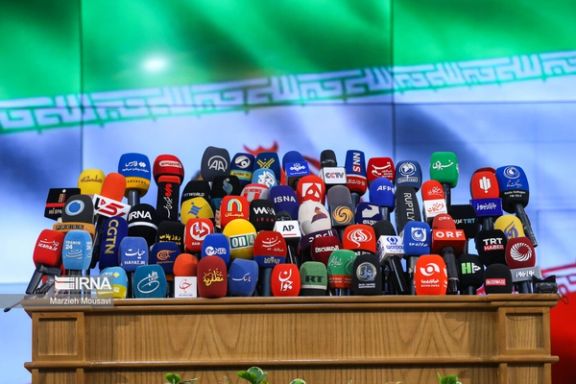
Considering the array of contenders vying for Ebrahim Raisi’s seat who have the highest chance of approval by the Guardian Council, it is highly unlikely that the next Iranian president will be a cleric.
In a tweet on Tuesday, prominent reformist commentator Abbas Abdi asserted that this is the first time since 1981 that clerics are not strongly represented among the registered candidates. Despite having held high positions and wield influence in the Islamic Republic, clerics now feel they have no chance of being elected.
Only three of the Islamic Republic’s eight presidents in over four decades -- Abolhassan Bani Sadr (1980-1981), Mohammad-Ali Rajai (August 1981) and Mahmoud Ahmadinejad (2005-2009) -- were non-clerics. This means that in 45 years clerics occupied the presidential seat for more than 35 years.
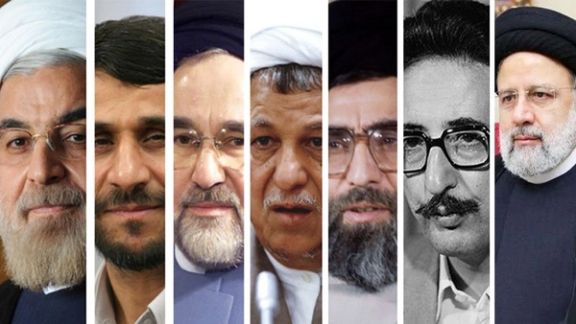
Bani Sadr was impeached and deposed by the clerical establishment. Rajai was assassinated along with his prime minister in a bombing 28 days after being elected. Ahmadinejad who was once Supreme Leader Ali Khamenei’s desired president, however, fell from his favor during his second term of presidency. He was not allowed to stand in 2017 and 2021 and is very unlikely to be approved this time.
Abdi’s inference is apparently based on the predictions of the most likely candidates to be approved. Only one cleric, former minister of justice and interior Mostafa Pourmohammadi, stands out among the registered candidates. Pourmohammadi does not seem to be among the top contenders or have a considerable chance of winning against his non-clerical rivals, even if approved by the 12-member, non-elected watchdog, the Guardian Council.
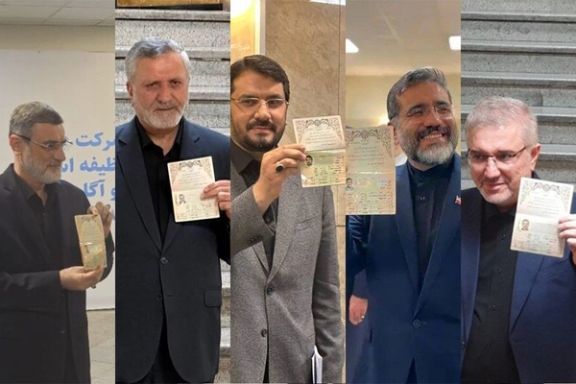
The government of the late President Ebrahim Raisi, however, is strongly represented among the candidates with two vice-presidents and three ministers. Minister of Roads and Urban Development Mehrdad Bazrpash, Minister of Cooperatives, Labour and Social Welfare Sowlat Mortazavi, Vice-President and Head of the Planning and Budget Organization Davoud Manzour, Vice-President and Chief of the Foundation of Martyrs and Veterans Affairs Amir-Hossein Ghazizadeh-Hashemi, and Minister of Culture and Islamic Guidance Mohammad-Mehdi Esmaili have registered to run.
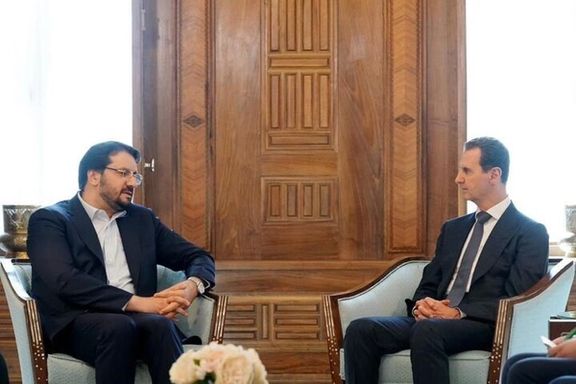
Acting President Mohammad Mokhber was widely believed to aspire to the presidency, but to everyone's surprise, he did not register. It is now believed that he is eyeing the vice-presidency in the next government.
All government candidates claim they will continue Raisi’s path if elected.
The Mayor of Tehran, Alireza Zakani, also sits in cabinet sessions while hardliner politician and candidate Saeed Jalili who does not hold any official position in the government, is believed to wield great influence in it.
On Tuesday, Gholam-Hossein Esmaili, Raisi’s Chief of Staff, asserted on a live television program that the government does not support any specific candidate. However, he urged "consensus" among those registered to run "so that a president with a high number of votes is elected."
Among the government-aligned candidates, Bazrpash, 44, is the most controversial yet widely believed to be the most likely to succeed if approved.
Bazrpash hails from populist Mahmoud Ahmadinejad’s circle of ‘young advisers’ when the former president was the mayor of the capital prior to 2005. He was given several high positions in Ahmadinejad’s government including chief of the National Youth Organization.
Bazrpash was voted by lawmakers in 2020 as chief of the State Audit Organization but some lawmakers who challenged his qualification for the position argued that he was inexperienced for such a high position and had not served a minimum of twenty years in government positions as required.
Rumors circulated that Bazrpash was interrogated about his last-minute change of plans and decision not to board the same helicopter as President Raisi, even before Raisi's body was recovered from the crash site last month.
On May 22, journalist Fariborz Kalantari claimed that Bazrpash and his team had already held a meeting to plan his candidacy in the June 28 elections to take Raisi’s place.
After his last-minute registration, Bazrpash showed a thick volume to reporters which he claimed was the comprehensive plan of his government. Many on social media say he could not have possibly written the plan in the less than two weeks he had to register as a candidate.
Bazrpash has also been accused of plagiarism in his Ph.D. thesis and financial corruption which rivals can use against him in election debates.
Many believe that if approved, all government officials, apparently except Esmaili, will eventually either withdraw from the race in favor of a ‘chosen’ one, or appear in a ‘supporting role’ to aid the block’s top candidate against Speaker Mohammad-Bagher Ghalibaf, Saeed Jalili or reformist candidates if any of them is approved.
“It makes no difference who wins. They make promises before getting endorsed as president but after that [their path] is obeyance of the [Supreme] Leader. We reject the entirety of this system,” one of Iran International TV’s audience said in a voice message.
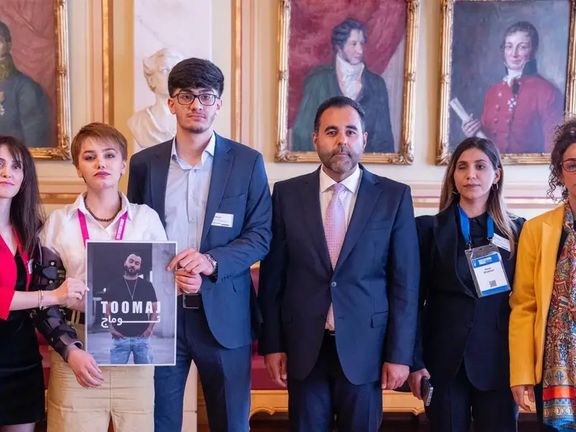
Three Iranian protesters injured during the 2022 nationwide uprising met with Masoud Gharakhani, the President of the Norwegian Parliament, in a bid to forward the plight of the Iranian public.
Kosar Eftekhrai, joined by Sima Moradbeigi and Zaniar Tondro, said, "We asked him to align Western countries with practical solidarity with the people of Iran and to stand on the right side of history".
The focus of the meeting was to shed light on the Iranian government's crimes against humanity including the murder of over 550 protesters in the wake of the 2022 uprising and last year's record executions of over 850. The UN has claimed Iran is imposing 'gender apartheid' as it continues to enforce brutal measures against women and girls shunning the mandatory hijab.
"The Islamic Republic is a government condemned for crimes against humanity, and we are witnesses to these crimes," Eftekhari emphasized on X.
Additionally, the trio took part in the 16th annual Oslo Freedom Forum (OFF) on Monday. At the forum, they highlighted the challenges faced by Iranian protesters, especially those who lost their eyes, and showcased the ongoing efforts of Iranian activists advocating for democracy and human rights.
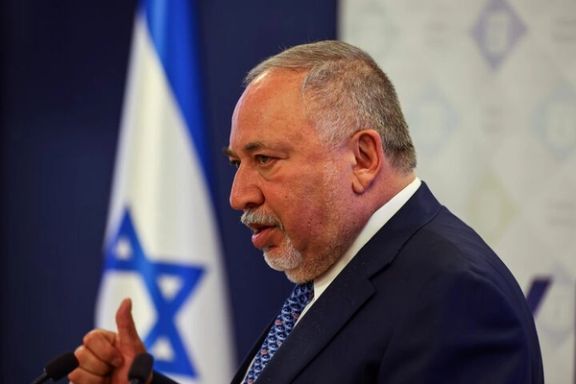
Israeli MP Avigdor Liberman has cautioned of an imminent threat from Iran, akin to a Holocaust within the next two years.
Speaking to Army Radio, Liberman asserted, "We are in the midst of an Iranian extermination program," expressing concerns over Iran's purported intention to unleash a barrage of missiles aimed at Israel.
Highlighting Iran's April 13 missile attack, Liberman emphasized the potential for a larger-scale assault in the future, suggesting that Israel could face simultaneous attacks from multiple fronts.
“Israel will be attacked with the aim of destroying it from several fronts with tens of thousands of missiles at the same time. They are planning a holocaust for us in the next two years,” he said.
In April, Iran launched approximately 350 missiles and drones towards Israel, most of which were intercepted.
A vocal critic of Prime Minister Benjamin Netanyahu's policies, opposition MP Liberman has advocated for more assertive military actions, including measures to contain Iran's biggest military proxy, Hezbollah, in southern Lebanon.
The terror group is currently bombarding Israel daily with drone and missile attacks in the worst violence since the second Lebanon war with Israel's war cabinet now debating how to respond. Since October 7, over 3,000 projectiles have been fired towards Israel.
Amid the war in Gaza, sparked by Iran-backed Hamas's invasion of Israel on October 7, Iran's proxies have since attacked the Jewish state from Iraq, Yemen, Lebanon and Syria.
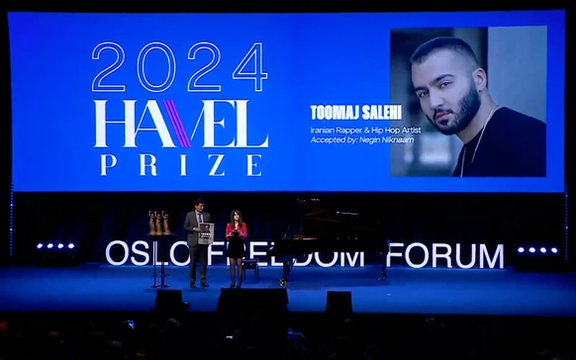
Imprisoned Iranian rapper Toomaj Salehi, who has been sentenced to death, was awarded the Václav Havel International Award at the 16th Oslo Freedom Forum in Norway's capital on Tuesday.
Salehi, an outspoken critic of the Islamic Republic, was one of the three winners of the award alongside Uyghur poet and filmmaker, Tahir Hamut Izgil and Venezuelan pianist and recording artist, Gabriela Montero.
Unable to attend the ceremony due to his imprisonment in Iran’s Dastgerd Prison in Esfahan, Salehi's award was accepted on his behalf by Iranian activist and friend, Negin Niknaam. Niknaam delivered a poignant speech, highlighting Salehi's plight and the broader struggle for freedom in Iran.
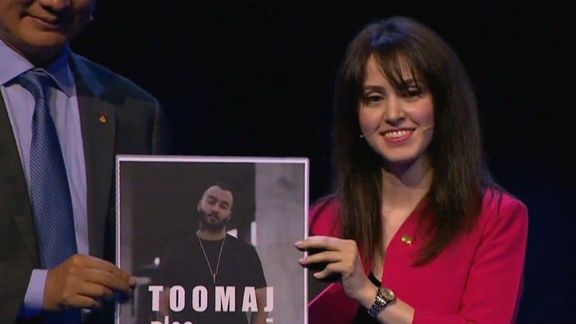
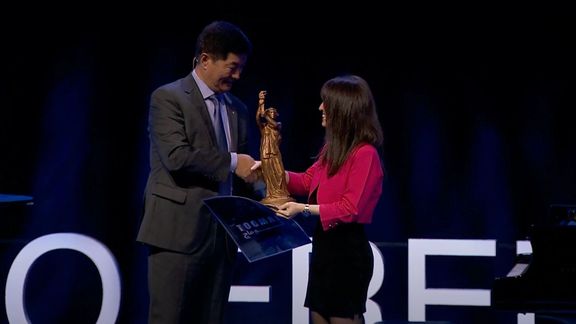
"Toomaj is not here. He cannot be here today. He sits in prison behind cold bars in Iran and is sentenced to death. The Islamic Republic wants to execute him. Why? Because he is much more than a musician. He is a beacon of hope, a symbol of resistance," Niknaam stated.
Salehi was charged with "corruption on Earth" by a court in Esfahan, after facing lesser charges. Niknaam stated that this charge “reflects the regime's fear of the courage and hope” that Salehi represents through his art.
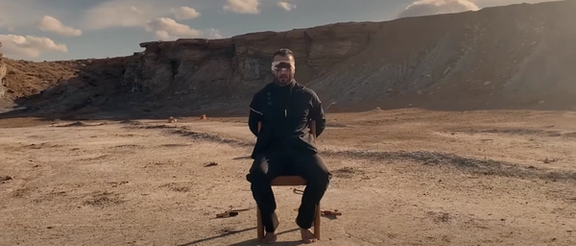
Salehi’s lawyer Amir Raisian confirmed the verdict of Salehi’s death sentence in April this year. Salehi who became an icon of Iran’s 2022 nationwide protests, released a song in support of the protestors in addition to lending his platform to echo the voices of Iranian protestors. He not only supported the protests in this manner but also joined them on the streets of Iran as security forces fired shots at peaceful protestors across the country.
This ultimately made him a target of the authorities and led to his violent arbitrary arrest, torture, imprisonment, and now a death sentence following sham trials without legal due process.
"The Islamic Republic wants to execute him because he has become the voice of a nation, yearning for freedom like the brave injured protestors…like those whose children were shot during the protests…like those brave women and men who drew their last breaths under the brutality of the security forces," Niknaam continued.
Further shedding light on the plight of Iranians, Niknam stated “despite the crackdowns, imprisonment, and executions, the movement for freedom in Iran continues to gain strength…”. However, she warned that the lack of inaction from Western countries only emboldens the regime to continue its repression, encouraging “the Islamic Republic to kill more protestors”.
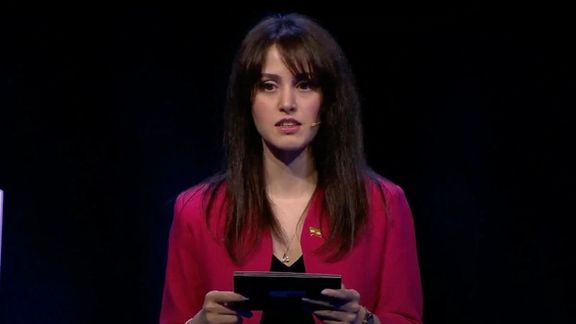
Niknaam urged the event’s attendees to raise their voices to support Toomaj until his release and emphasized that the Islamic Republic regime sometimes falls short in the face of international pressure.
Niknaam concluded her speech by echoing Salehi's words which became viral among young Iranians: "The ultimate death is the death of hope."
Salehi's cousin, Arezou Babadi, spoke to Iran International following the event, emphasizing the global impact of his courage.
"Toomaj’s unwavering courage and voice have transcended borders, making him a global icon of freedom of expression and resistance. Toomaj stands as a beacon for the voiceless, embodying the relentless pursuit of truth and justice in a world often shrouded in silence," Babadi stated.
During the past weeks, hundreds of family members of the dead and wounded in the Iran-Iraq war, civil activists, and cultural and artistic figures around the world, in separate statements, demanded the release of Salehi.
Shortly after Niknaam’s speech, Jack Dorsey, the co-founder of Twitter took to social media and wrote #FreeToomaj shortly after Niknaam’s speech.
The Václav Havel International Award recognizes those who demonstrate exceptional courage and creativity in standing up to tyranny. The Havel Prize is named after the late Czech president and former New York-based nonprofit Human Rights Foundation chairman, Václav Havel. Havel is remembered for his struggles against the communist government of Czechoslovakia. He was elected as the first Prime Minister of the Czech Republic and held power in this country from 1993 to 2003. He died in 2011.
Further reflecting on Salehi’s award following her speech, Niknaam told Iran International English:
“Toomaj's unwavering commitment to his cause makes him a deserving recipient. Toomaj’s plight and the ongoing struggle of the Iranian people serve as a powerful reminder to the world of the resilience and strength required to fight for freedom.”